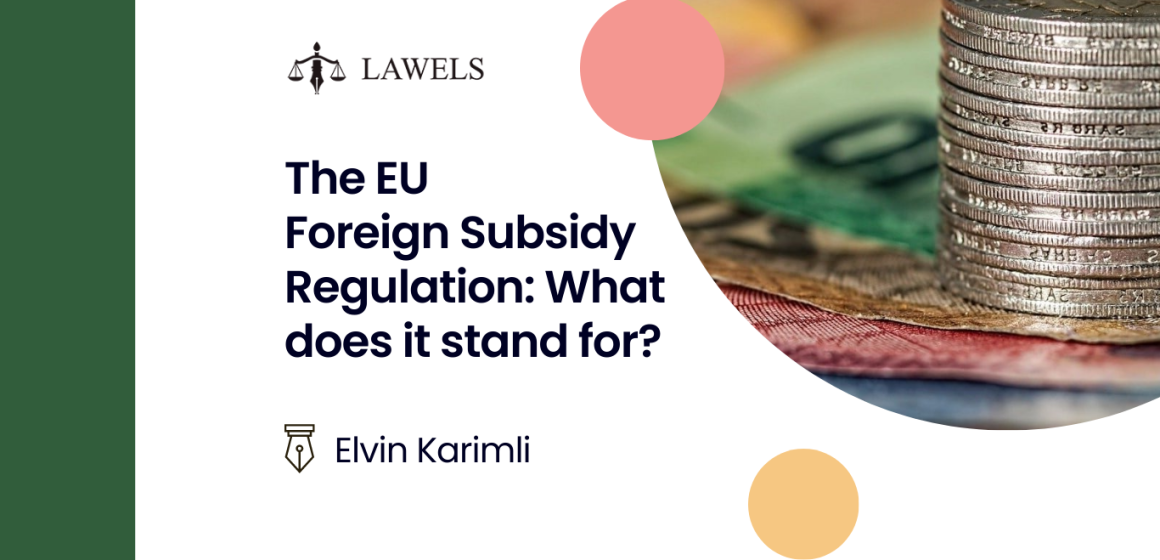The European Union’s Foreign Subsidies Regulation (the “FSR”) entered into force on 12 January 2023 and introduces a new control regime for foreign subsidies aimed at addressing distortions of competition on the EU internal market caused by such subsidies and ensuring a level playing field. Mandatory notification and approval requirements are imposed by the FSR for the concentrations (mergers, acquisitions, and creation of JVs) and public procurement procedures. Also, extensive powers are granted to the European Commission (“EC”) to launch the investigations on its own (ex officio investigations).
In addition, a draft Implementing Regulation (“DIR”) is published by the EC to clarify the procedural steps and practicalities of the FSR system. The DIR also includes two annexes providing the standard forms for the required information that the companies need to submit in case of concentrations and public procurement.
Financial contribution v foreign subsidy
The ex officio investigation and notification procedures come into play in case non-EU financial contributions are, directly or indirectly, provided by non-EU public authorities, public or private entities attributable to non-EU countries. “Financial contribution” under the FSR is formulated as a deliberately far-reaching concept, which can cover a broad range of forms, such as direct grants, interest-free or low-interest loans, state-funded R&D, tax incentives, government contracts, and grants of exclusive rights without adequate remuneration.
Financial contributions can be qualified as a foreign subsidy in case it provides a benefit on an undertaking in the EU and that benefit is limited to one or more companies/industries as opposed to all companies in a particular industry.
The EC’s investigative tools
From 12 October 2023 onwards, the companies engaging in M&A activity or public procurement procedures in the EU will be required to submit formal notifications and obtain EU approval in case of triggering the thresholds under the FSR.
Regarding the M&A transactions – the FSR provides the following cumulative thresholds for the notification obligation in the M&A transactions. Firstly, the turnover of one of the parties in the M&A transactions should be 500 EURO million in the last financial year. Besides that, the undertakings concerned should receive from non-EU governments or State-owned entities financial contributions of more than 50 EURO million in the three years prior to the notification.
Regarding the Public Tenders – the FSR also provides the cumulative thresholds for the notification obligation in the Public Tenders. Firstly, the contract value is not less than 250 EURO million, or in case the tender is divided into lots, the aggregate value of the lots is not less than 125 EURO million. Besides that, the bidding party and its main subcontractors received aggregated foreign financial contributions of not less than 4 EURO million in the three years prior to the notification.
As of 12 July 2023, the EC will be granted the powers to conduct ex officio investigations into all potentially distortive foreign subsidies. Based on these powers, the EC will be able to examine the support granted by third countries to companies up to 10 years before the start of the investigation (but not more than five years prior to the application of the FSR). It is worth noting that there are no notification obligations between 12 July 2023 and 12 October 2023. Accordingly, the EC could investigate the transactions that were signed or announced or public tenders that were initiated after 12 July 2023.
The EC’s enforcement powers
In case the companies breach their obligation under the FSR, the EC can impose a fine of up to 10% of their aggregate turnover in the preceding financial year. The EC also has powers to subject companies to fines up to 1% of global turnover and periodic penalty payments of up to 5% of the average daily aggregate turnover for each working day of delay in case of providing incorrect, incomplete, or misleading information.
The articles on the LAWELS platform are not, nor are they intended to be legal advice. You should consult a lawyer for individual advice or assessment regarding your situation. The article only reflects the views of the author.


